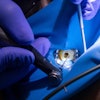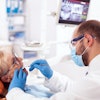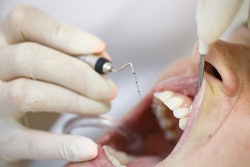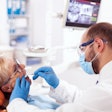Streptococcus anginosus, a common germ in the mouth and gut, may be abundant in stroke patients' intestines, according to a preliminary study presented at the American Stroke Association's International Stroke Conference 2025, which took place February 5-7.
Additionally, a gut bacteria, Anaerostipes hadrus, known for its beneficial effects, may be linked to a reduced risk of stroke, according to a press release from the American Heart Association dated January 30.
"Our findings offer new insights into the connection between oral bacteria and the risk of stroke, as well as potential strategies for stroke prevention," Dr. Shuichi Tonomura, lead author of the study and staff physician in the department of neurology at the National Cerebral and Cardiovascular Center in Japan, said in the release.
This study included 250 Japanese participants with an average age of 70. It compared 200 stroke patients with 50 age-matched individuals undergoing routine checkups who may have had conditions like high blood pressure, diabetes, or high cholesterol.
Researchers analyzed oral and gut microbiomes using saliva and stool samples collected between July 2020 and July 2021. Over a two-year follow-up, they tracked mortality and new cardiovascular events among stroke patients, according to the release.
Streptococcus anginosus in the gut was linked to a 20% higher stroke risk, even after adjusting for vascular risk factors. In contrast, Anaerostipes hadrus was associated with an 18% lower risk while Bacteroides plebeius, common in the Japanese population, was linked to a 14% reduction.
Over two years, stroke survivors with Streptococcus anginosus had a significantly higher risk of death and major cardiovascular events. However, no increased risk of death or poor outcomes was observed in those with Anaerostipes hadrus or Bacteroides plebeius, according to the release.
However, due to the study's small sample size and focus on a Japanese population, the results may not apply broadly to other groups.
"In the future, if there was a quick test to detect harmful bacteria in the mouth and gut, we could use the information to help calculate stroke risk. Targeting these specific harmful oral bacteria may help prevent stroke," Tonomura said.




















